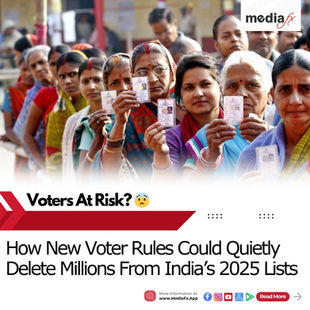“OMG! India Just Outlawed Online Gambling—And Fantasy Cricket Took a Total U-Turn! 😱💥”
- MediaFx

- Aug 23, 2025
- 2 min read
TL;DR
India’s Parliament has passed the Promotion and Regulation of Online Gaming Bill, 2025, creating a sweeping ban on all real-money online games—ranging from poker to fantasy cricket. People can now face up to five years in jail for breaking this law. Once-booming platforms like Dream11, MPL, Zupee have already halted their paid contests, leaving millions of users and youth unsure and shocked. While this hits investors and big VCs hard, the government says they’re doing this to protect folks from addiction, financial ruin, and scams—shifting the focus to e-sports, skill-based games, educational formats and social gaming. Justice for people, over profiteering!

The Story (In Youthy Indian English with Emojis + Hashtags)
Yo fam, Parliament just dropped a bomb—the Promotion and Regulation of Online Gaming Act, 2025 is now a reality, criminalising offering, promotion, or financing of real-money online games like poker, cards, fantasy cricket, etc. Offenders could get up to five years in jail! 🇮🇳
This comes after data showed companies were stripping $2.3 billion from 450 million people annually—ya, those are MASSIVE numbers 🔥.
Major fantasy-game giants—Dream11, MPL, PokerBaazi, Zupee—wasted no time. They’ve already suspended their cash games and contests, leaving users hanging and revenue streams offline. The industry’s growth projection—around $3.6 billion by 2029—now looks shaky.
TVCR players loved fantasy cricket, right? Now it’s over? The BCCI is sweating over Dream11’s sponsorship on Team India jerseys. They said they’ll go by govt policy—whatever that may bring. 🏏
The govt isn’t mincing words: they’re calling these platforms “social evils”, citing risks like addiction, financial harm, even suicides, plus fraud and money-laundering ties. They want to protect our youth, especially from games that promise quick cash.
But they DID build in support for e-sports, educational games, and social gaming (without money at stake)—basically saying, “Game on, but fair game only!”
Still, voices from the industry say it was too sudden. They warn users may shift to offshore or unregulated platforms—and few things are worse than pushing youth toward shady internet corners.
MediaFx’s Take (A People-First Perspective)
See, our society’s youth—students, job-seekers, even working folks—often live paycheck to payoff. When these platforms show up, promising quick cash, many get lured. But when folks lose their hard-earned money, it’s a real crisis—not just a clickbait. So from people’s perspective, the state stepping in to curb addiction and exploitation is legit.
Yes, the ban disrupts investors and even jobs. But wealth shouldn’t come at the cost of our community’s mental-peace. Instead of letting money-games prey on dreams, this law pushes for honest, creative, skill-based play—something that uplifts youth without trapping them.
Still, we must also guard against overreach. Does banning outright work better than regulating responsibly? We gotta demand fair regulation from govt, not let the industry die. Help should go to future-forward, safe e-sports, not shady offshore apps. True change comes when people win—not when big money does.













































